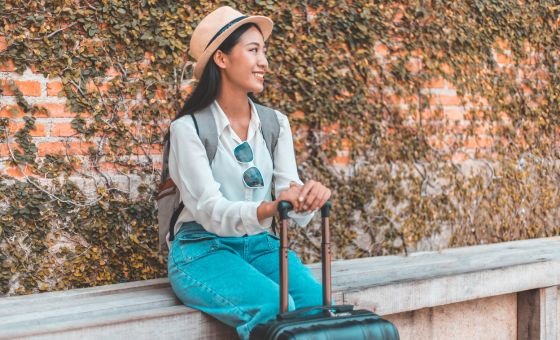Introduction:
Macau, often referred to as the “Las Vegas of Asia,” is a unique blend of cultures where East meets West. Situated on the southern coast of China, Macau was a Portuguese colony until 1999, which has left a profound influence on its culture, architecture, and cuisine. Today, Macau stands as a vibrant city where traditional Chinese customs coexist harmoniously with European influences, creating a fascinating destination for travelers from around the globe.
Historical Background:
Portuguese Colonization: Explore how Portuguese explorers arrived in Macau in the 16th century, establishing it as a trading post and later a colony.
Cultural Exchange: Discuss the cultural exchange between Portugal and China during the colonial period, highlighting the impact on language, religion, and cuisine.
Return to China: Explain the handover of Macau to China in 1999 and its transformation into a Special Administrative Region, maintaining a unique blend of Eastern and Western influences.
Architectural Marvels:
Historic Center of Macau: Highlight the UNESCO World Heritage-listed Historic Center of Macau, featuring well-preserved colonial buildings, such as the Ruins of St. Paul’s and Senado Square.
East Meets West Architecture: Explore how Macau’s architecture reflects its multicultural heritage, with Chinese temples juxtaposed against Portuguese-style churches and colorful colonial buildings.
Modern Developments: Discuss the integration of contemporary architectural marvels, such as the iconic Grand Lisboa Hotel and the futuristic Morpheus Hotel, blending traditional and modern design elements.
Culinary Delights:
Macanese Cuisine: Introduce the unique fusion cuisine of Macau, which combines Chinese and Portuguese ingredients and cooking techniques, featuring dishes like African Chicken, Portuguese Egg Tarts, and Bacalhau.
Street Food Culture: Explore Macau’s vibrant street food scene, where visitors can sample a variety of snacks and delicacies, from Portuguese chorizo to Chinese dim sum.
Michelin-Starred Dining: Highlight Macau’s reputation as a gourmet destination, with numerous Michelin-starred restaurants offering a diverse range of culinary experiences, from fine dining to casual eateries.
If you embark on a journey that promises both excitement and relaxation, incorporating an 온라인카지노 into your itinerary can enhance the thrill. The digital slots and virtual card tables offer a convenient way to enjoy classic casino entertainment, turning any destination into a vibrant gaming parlor.
Cultural Heritage:
Festivals and Celebrations: Explore Macau’s rich calendar of cultural festivals and celebrations, including Chinese New Year, the Feast of the Drunken Dragon, and the Macau International Fireworks Display Contest.
Traditional Arts: Discuss the preservation of traditional Chinese and Portuguese arts and crafts in Macau, such as Cantonese opera, Portuguese tile-making, and Chinese calligraphy.
Museums and Heritage Sites: Highlight key cultural institutions in Macau, such as the Macau Museum and the Maritime Museum, which showcase the city’s history, art, and heritage.
Entertainment and Nightlife:
Casinos and Entertainment Resorts: Discuss Macau’s reputation as a global gambling hub, with lavish casinos and integrated resorts offering world-class entertainment, shopping, and dining.
Nightlife Hotspots: Explore Macau’s vibrant nightlife scene, with trendy bars, clubs, and lounges catering to a diverse range of tastes, from live music venues to glamorous rooftop bars.
Cultural Performances: Highlight cultural performances and shows in Macau, including traditional Chinese opera, Portuguese fado music, and spectacular acrobatic productions.
Natural Attractions:
Scenic Landscapes: Introduce Macau’s lesser-known natural attractions, such as Coloane Island’s hiking trails, beaches, and lush greenery, providing opportunities for outdoor recreation and relaxation.
Guia Hill and Fort: Explore Guia Hill and its historic fort, offering panoramic views of Macau’s skyline and coastline, as well as a tranquil retreat from the bustling city below.
Ecotourism Initiatives: Discuss efforts to promote sustainable tourism and protect Macau’s natural environment, including eco-friendly tours, conservation projects, and green initiatives.
Conclusion:
Macau’s status as a crossroads of cultures, where East meets West, makes it a truly remarkable destination for travelers seeking an enriching and immersive experience. From its rich history and diverse architecture to its vibrant culinary scene and dynamic entertainment options, Macau offers something for everyone, blending tradition with modernity in a captivating fusion of cultures. Whether exploring its historic landmarks, savoring its culinary delights, or immersing oneself in its cultural heritage, visitors to Macau are sure to be enchanted by its marvels.


